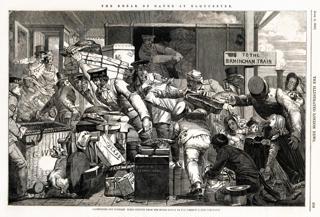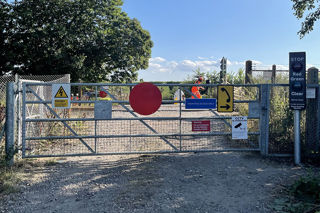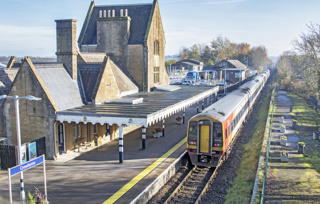Consultation papers are, by their very nature, rather dishonest exercises.
They set out a series of ideas which are supposedly open to discussion and even amendment. But if a government minister knows what they want and has the backing of the rest of the Cabinet, then the process is ultimately a sham.
Consultation papers are, by their very nature, rather dishonest exercises.
They set out a series of ideas which are supposedly open to discussion and even amendment. But if a government minister knows what they want and has the backing of the rest of the Cabinet, then the process is ultimately a sham.
Whatever the respondents say or suggest, the government’s plan will be enacted and any opposition quietly ignored. Blindly ignoring any counter arguments is, of course, particularly easy for a government with a whopping majority.
The way that questions are posed (or indeed not asked) in the consultation paper will provide pointers to the likely outcomes of the process.
Therefore, we can glean quite a lot about the future desired structure of the industry from parts of the consultation document on Great British Railways, although other sections are more difficult to analyse because they are deliberately couched in vaguer terms.
The fundamental approach set out in the A railway fit for Britain’s future paper could be termed ‘statism’. As expected, given that the whole idea is ‘renationalisation’, the paper suggests that by and large the government should have much more control of the railways. But the detail here is interesting.
Let’s start with the biggy - the role of Network Rail. In the run-up to last year’s election, and even subsequently, there has been considerable debate around the future status of the organisation.
There was widespread concern within the industry that Network Rail should not be the dominant player in the new structure, but rather be subservient to a Great British Railways responsible for operating the railways and therefore with the interests of passengers at its heart.
Network Rail, after all, is primarily an engineering company - remember its original slogan of promising ‘engineering excellence’. And, if its recent performance is anything to go by, not a very good one.
Network Rail’s management lobbied strongly that it should have the key position in the new structure, but on the basis that it was aware of its past failings and that Network Rail at the heart of Great British Railways would be a very different beast.
Earlier in this government, NR seemed to be losing that argument. Louise Haigh, the first Transport Secretary in the Labour government, seemed to suggest that Network Rail would be abolished and folded into Great British Railways. Now, however, it seems that NR has emerged triumphant.
The consultation paper says: “To avoid delay resulting from highly complex transfers of assets, people, and contracts that would otherwise be required during implementation, GBR will be created out of Network Rail Infrastructure Limited.”
This argument, over the complexity of transferring all the tens of thousands of Network Rail staff, was put to me several times in the past few months. But I think it is something of a red herring.
If the government had been intent on transferring staff to another organisation under the TUPE (Transfer of Undertakings, Protection of Employment) rules, it is quite possible to do that. Indeed, GBR will undoubtedly take staff from the Department for Transport - and possibly other organisations such as the Office of Rail and Road (ORR).
But is it game, set and match to Network Rail?
I am not so sure. Although the consultation document does not offer a question on the role of Network Rail, the issue is by no means done and dusted. No picture of the ultimate structure of the industry emerges from the paper, so quite possibly all is still to play for.
That is also the case with the discussion on the future of the passenger watchdog - Transport Focus.
Oddly, the press release on the consultation paper highlighted “plans for landmark reform bill to establish a new passenger watchdog” as the first item - a rather strange decision given this is rather a secondary issue.
Moreover, the discussion suggests that maybe there is no need for an entirely new body, but rather a revamped ‘Passenger Focus’ could be adapted to the post-nationalised railway.
But in truth, this is not (by a long shot) the most pressing issue facing the industry. There are areas which have clearly been dodged, to avoid controversy.
On open access operators, the paper suggests that these could “add value and capacity to the network”, which seems to be more favourable to them than the recent correspondence from Transport Secretary Heidi Alexander to the ORR, which appeared to suggest they were more trouble than they were worth.
There is, in fact, growing recognition in the Department that giving free rein to the open access operators will extract revenue from Great British Railways. Much work is going into trying to work out the precise economics, in order to prevent open access companies benefiting from what is effectively a hidden subsidy.
The desired outcome on ticket retailing has also been left rather vague.
Originally, in the previous government’s now largely forgotten White Paper, there was the idea that GBR would in effect be the sole ticket supplier.
This clearly ran against the private sector ethos favoured by the Conservatives, and therefore there was a 180° turn and private suppliers were seen as becoming the main providers.
Now, it seems, a compromise has emerged - which is to create a large GBR online presence while allowing the private retailers to remain.
The devil will be in the detail. If GBR is allowed commercial freedom, it will be such a big beast that it will be difficult for the private retailers to compete, especially those who charge a booking fee.
GBR will be anxious to retain as much of the revenue as possible, rather than having to pay a percentage of ticket prices to the private operators - particularly as online sales are basically cost free, given that once the software is set up, there is no perceptible expense in selling the tickets.
Here, the consultation paper may be genuinely seeking views. But watch for heavy lobbying from the likes of Trainline on this issue.
While on the face of it there is much to play for, a confident government with strong ministers ought to be clear about where it sees the industry going.
Its response to the inevitable flood of responses and lobbying will be a mark of how clear it is about its ultimate plans for the rail industry, and to what extent it is still being buffeted by external forces.
Login to continue reading
Or register with RAIL to keep up-to-date with the latest news, insight and opinion.



















Login to comment
Comments
No comments have been made yet.